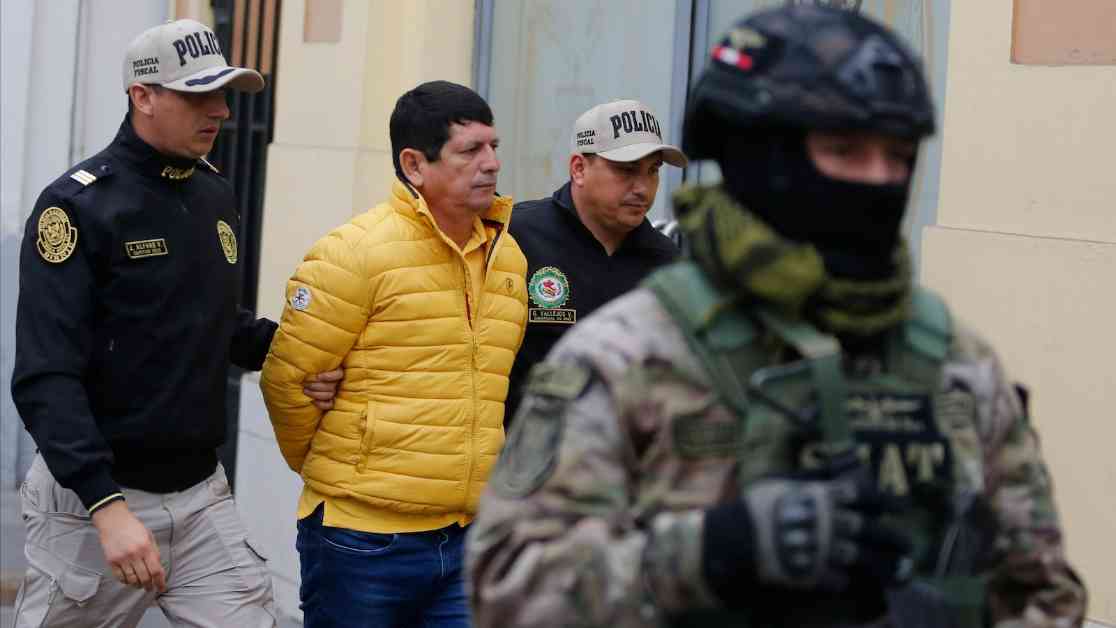Peruvian police in Lima recently arrested Agustín Lozano, the head of the country’s soccer federation, on charges of fraud, extortion, money laundering, and other crimes. This arrest is part of an ongoing investigation into allegations that Lozano used his position to extort local clubs into giving up their television rights.
Lozano, who succeeded his predecessor in 2018, was taken into custody outside his home in Lima while journalists looked on. He denied any wrongdoing and asked the public to withhold judgment. Along with Lozano, six other individuals allegedly involved in the conspiracy were also arrested.
According to prosecutors, Lozano and his associates attempted to acquire valuable broadcast rights from Peru’s top soccer clubs. Those who refused to comply were threatened with relegation from the first division. Additionally, it is suspected that Lozano misused $1.8 million in federation funds to transport 142 unrelated individuals to a playoff match between Peru and Australia in Doha in 2022.
While Lozano has not been formally charged, authorities deemed him a flight risk and a potential obstacle to the investigation, leading to his arrest. This is not the first time Lozano has faced legal issues, as prosecutors previously sought his arrest in connection with an embezzlement case during his tenure as mayor of Chongoyape.
Under Lozano’s leadership, Peru’s national soccer team is struggling to qualify for the 2026 FIFA World Cup, currently ranking second to last among South American teams. This latest scandal has further tarnished the reputation of Peruvian soccer and raised concerns about corruption within the sport.
The arrest of a high-profile figure like Agustín Lozano highlights the pervasive issue of corruption in sports governance. It serves as a reminder that those in positions of power must be held accountable for their actions and that transparency and integrity are essential in maintaining the credibility of sports organizations.
As the investigation unfolds, it is crucial for authorities to thoroughly examine the evidence and ensure that justice is served. The outcome of this case will not only impact the future of Peruvian soccer but also send a message about the consequences of unethical behavior in the world of sports.








